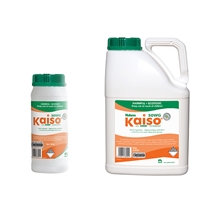29Jan
Machinery Maintenance
Words Supplied by Compliance Partners
Machinery is a fundamental part of our farms and is used daily. But with that hard work comes a fair amount of wear and tear. When maintenance is delayed it can lead to accidents from machinery break down, as well as increased costs and business interruption, stress and pressure. The Health & Safety at Work Act requires us to ensure our machinery and equipment is in a safe working condition. That's why it's essential to make sure all maintenance, repair, servicing and cleaning activities on machinery and equipment on farm is scheduled and planned and is carried out in a healthy and safe way. The best way to start is to write up a maintenance plan for each piece of machinery or equipment. Remember, each item is going to be slightly different with what needs to happen and when, so this is a good way to get the team on the same page.
A maintenance plan basically illustrates how a competent person will regularly inspect, test and maintain the machinery or equipment. Maintenance programmes should detail things like the following and be put together in line with the manufacturer’s operation manual:
- Name of equipment;
- Isolate/tag out procedures (for while the servicing is happening);
- Where on the machine requires servicing;
- What type of servicing is needed;
- How often it needs to be serviced;
- Who is responsible for the servicing and maintenance;
- How defects will be fixed, by whom and when.
The plan should be reviewed regularly to ensure its effective and that it is being carried out as it needs to be. And make sure you keep all service and maintenance records.
What are some of things that should be covered in the plan?
Each piece will be slightly different, but here’s some key things that should be considered:
- Controls – these should work as the manufacturer intended;
- Emergency stops in place and working;
- Roll over and falling object protective structures – bolts, condition etc.;
- Personal protective equipment readily available;
- Air filters and air conditioners in good working order;
- Brakes – pads, fluid levels, adjustment etc.;
- Exhaust – no holes etc.;
- Nests etc. in engines;
- Tyres – roadworthy, tread, pressure;
- Wheels – nuts, rust weep, grease, alignment etc.;
- Seatbelts – provided, adjustable, working etc.;
- Guards – PTO, safety all in place;
- Drive belts – condition and tension;
- Greasing points;
- Battery;
- Fluid – radiator, transmission, oil, battery, brake, fuel;
- Hydraulic hoses – not leaking or worn;
- Lights – field, head, tail, warning, indicator;
- First Aid kits and Fire Extinguishers in place and well stocked.
It’s important to remember that even small things, like mud and dirt, can build up on the cab floor and get under the pedals. A brake pedal depressing onto five centimetres of caked dirt is a pedal that has five centimetres less travel. A bit of time spent now making the plan and getting into the habit of doing this will definitely save time in the long run, as well as keeping everyone safe around working machinery.
Contact Compliance Partners on 021 942 150 to discuss all your machinery maintenance plan questions – as well as all occupational health, safety and drug testing needs.
Related

A new Lincoln University initiative is looking to come up with new creative, innovative, integrative...
Read More

Corteva Agriscience leverages global research and local knowledge of forage brassica production in N...
Read More

This year’s South Island Dairy Event (SIDE) is particularly welcome after the difficulties and canc...
Read More

“The strength and importance of co-operatives is well recognised within the New Zealand economy. Th...
Read More

The cereal aphid (Rhopalosiphum padi) may be tiny in size, but as the main vector for one of the mos...
Read More

Farm confidence has fallen since the start of the year, with debt, interest rates, and banks causing...
Read More